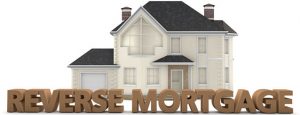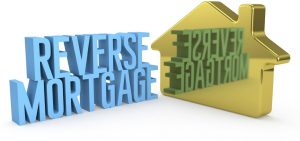What Does Reverse Mortgage Mean?
Page Contents
Are you curious to know what does reverse mortgage mean and what you can do with it? Reverse mortgage is also called as HECM which stands for Home Equity Conversion Mortgage. This financial product is available for United States homeowners who are 62 years of age or older. These homeowners have accrued home equity and would like to use it in supplementing their retirement income.
Reverse mortgage is not like the usual forward mortgage as this do not require monthly payments. However, the borrower still has to pay for the property’s taxes and insurance. He or she must also reside in the property for as long as the loan stands. This kind of loan may be quite challenging to comprehend at first. That’s why we’ll provide you with this article to be a guide on reverse mortgage. Let’s begin with the basic terms and features.
Reverse Mortgage vs. Forward Mortgage
In a nutshell, reverse mortgage is a kind of home equity loan for seniors. This loan helps them to make use of their home’s equity. When we compare reverse mortgage to forward mortgage, they are the opposite of each other. With the forward mortgage, monthly payments are made by the borrower to the lender. This reduces the balance of the loan gradually and builds equity.
With the reverse mortgage, payments are being received by the borrower from the lender. The borrower doesn’t have to make any payments to the lender for as long as the home is still being occupied by the borrower. He or she should also continue to meet the basic responsibilities. This includes paying the insurance and taxes.
Overtime, the balance of the loan grows since the borrower is receiving payments. Interest is also accumulated on the loan and there is a decline of the home equity overtime. In essence, this kind of mortgage goes in the opposite direction compared to a forward mortgage. Thus, the name “reverse mortgage.”
How is Reverse Mortgage Paid?
Eventually, the reverse mortgage must also be repaid. The loan will be due when the borrower gets to sell the property or when he or she passes away. Nevertheless, the borrower may opt to pay back the loan sooner than that.
But for many cases of reverse mortgages, the loan is paid when the property is sold. If you’re planning to get a reverse mortgage, you first have to understand that it is designed in such a way that whatever amount you owe will not exceed your property’s value.
Reverse mortgages are from the HECM which is the Federal Housing Administration’s program. This means that the federal government guarantees these loans. Borrowers don’t have to worry about the lender not being able to make the payment.
Who can Apply for Reverse Mortgage?
Among the many strengths of this loan program from the HECM is that the requirements are not very restrictive. It is much easier for a borrower to be qualified for these loans compared to other products like home equity line of credit, home equity loan, or mortgage refinance.
To check your eligibility, here is the list of requirements for a reverse mortgage:
- The borrower should be aged 62 years or older
- The borrower should be the owner of a home which he or she uses as the primary residence
- Your home should be one of the following: manufactured home, approved condominium, multi-family, or single-family home.
- The home should either be clear of existing mortgage or only a small amount is left to be paid.
- The home should be in good condition before applying for a loan.
- The borrower should first have a meeting with an approved counselor from the HUD before applying for a reverse mortgage. This is to help determine if a reverse mortgage is what the borrower needs for his or her needs. It will also be beneficial for the borrower to attend these meetings so that he or she can further gain understanding of the loan and how it works, along with various alternatives availab
If you want to apply for this kind of loan, a financial assessment is also required so that you can qualify. This assessment ensures that you as a borrower will be able to pay for the following:
- Basic home maintenance
- Homeowner’s insurance
- Property taxes
- And any Home Owners’ Association fees
Benefits of a Reverse Mortgage
When you are approved for a reverse mortgage, whatever amount you’ll get is going to be based on your age, the worth of your home, and the interest rate that the lender will offer you. In general, you’ll get more if you’re older and if your home’s worth is high.
With the reverse mortgage, you don’t have to worry about repaying the loan for as long as you live, you keep your home as your residence, and you keep the terms of the loan. The money may be disbursed through check or if you want, a line of credit. There are also those who choose to get lump sum payments.
Final Thoughts
Hopefully, this article was able to help you in answering the question “What does a reverse mortgage mean?” If you meet the requirements needed to apply for a reverse mortgage, then it is important to take time to think if this is the financial product that you need. You may also opt to talk to a financial advisor who can guide you and help you in making this decision regarding reverse mortgage.

Samantha has been helping folks with their reverse mortgages for over 20 years. If you have any questions about our financial services, including whether or not a reverse mortgage is right for you, then please contact us today.




